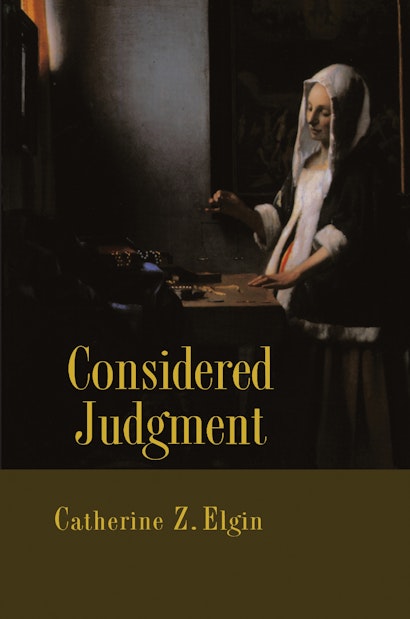Considered Judgment


Paperback
- Price:
- $65.00/£55.00
- ISBN:
- Published:
- Feb 21, 1999
- Copyright:
- 1996
- Pages:
- 240
- Size:
- 6 x 9.25 in.
- Main_subject:
- Philosophy
ebook
Philosophy long sought to set knowledge on a firm foundation, through derivation of indubitable truths by infallible rules. For want of such truths and rules, the enterprise foundered. Nevertheless, foundationalism’s heirs continue their forbears’ quest, seeking security against epistemic misfortune, while their detractors typically espouse unbridled coherentism or facile relativism. Maintaining that neither stance is tenable, Catherine Elgin devises a via media between the absolute and the arbitrary, reconceiving the nature, goals, and methods of epistemology. In Considered Judgment, she argues for a reconception that takes reflective equilibrium as the standard of rational acceptability. A system of thought is in reflective equilibrium when its components are reasonable in light of one another, and the account they comprise is reasonable in light of our antecedent convictions about the subject it concerns.
Many epistemologists now concede that certainty is a chimerical goal. But they continue to accept the traditional conception of epistemology’s problematic. Elgin suggests that in abandoning the quest for certainty we gain opportunities for a broader epistemological purview—one that comprehends the arts and does justice to the sciences. She contends that metaphor, fiction, emotion, and exemplification often advance understanding in science as well as in art. The range of epistemology is broader and more variegated than is usually recognized. Tenable systems of thought are neither absolute nor arbitrary. Although they afford no guarantees, they are good in the way of belief.